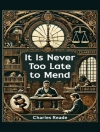In ‘The True Pirate Adventures, ‘ Daniel Defoe weaves a gripping tapestry of maritime exploits and adventures that transport readers to the treacherous waters of the early 18th century. Utilizing a vivid narrative style characterized by detailed descriptions and an adventurous spirit, Defoe explores the lives of pirates beyond the one-dimensional portrayals often seen in contemporary literature. This book reflects the historical context of the Golden Age of Piracy, capturing the nuances of pirate life, moral dilemmas, and societal perceptions that surrounded these enigmatic figures. Through a blend of factual accounts and imaginative storytelling, Defoe constructs a captivating narrative that goes beyond mere adventure, serving as a commentary on freedom, lawlessness, and the quest for identity during a tumultuous period in maritime history. Daniel Defoe, an author renowned for his acute observation and understanding of human nature, draws on his rich personal experiences and extensive research in this work. Born in 1660, he was a merchant, journalist, and even a spy, providing him with insights into the criminal underworld and the socio-political dynamics of his time. These diverse backgrounds undoubtedly influenced Defoe’s portrayal of pirate life in a manner that reflects both romantic ideals and harsh realities, making his narratives resonate with authenticity. ‘The True Pirate Adventures’ is an essential read for anyone fascinated by maritime history, adventure tales, or the complexities of human character. Defoe’s masterful storytelling invites readers to immerse themselves in an era filled with danger, excitement, and moral ambiguity, ensuring that this tale will linger in the minds of its audience long after the final page is turned.
About the author
Daniel Defoe (c. 1660 – 24 April 1731) was an English writer, journalist, and pamphleteer, now most famously known for his novel ‘Robinson Crusoe’. Defoe is considered one of the earliest proponents of the novel, as he helped to popularize the form in Britain and is among the founders of the English novel. A versatile and prolific writer, he penned more than 500 books, pamphlets, and journals on various topics (including politics, crime, religion, marriage, psychology, and the supernatural). He was also a pioneer of economic journalism and wrote extensively in this field. Although ‘The True Pirate Adventures’ is not one of his renowned works, it is an emblematic example of his interest in adventures and seafaring themes, which also prominently feature in his acclaimed work ‘Captain Singleton’. Defoe’s literary style often embraced a direct, resonant, and vigorous narrative voice, with a keen eye for detail and a reporter-like commitment to fact. His works are characterized by their moral seriousness, pragmatism, and penetrating psychological depth. The geographic and social realism in his books has been a major influence on subsequent generations of writers and helps cement Defoe’s status as a key figure in the development of the English novel.












